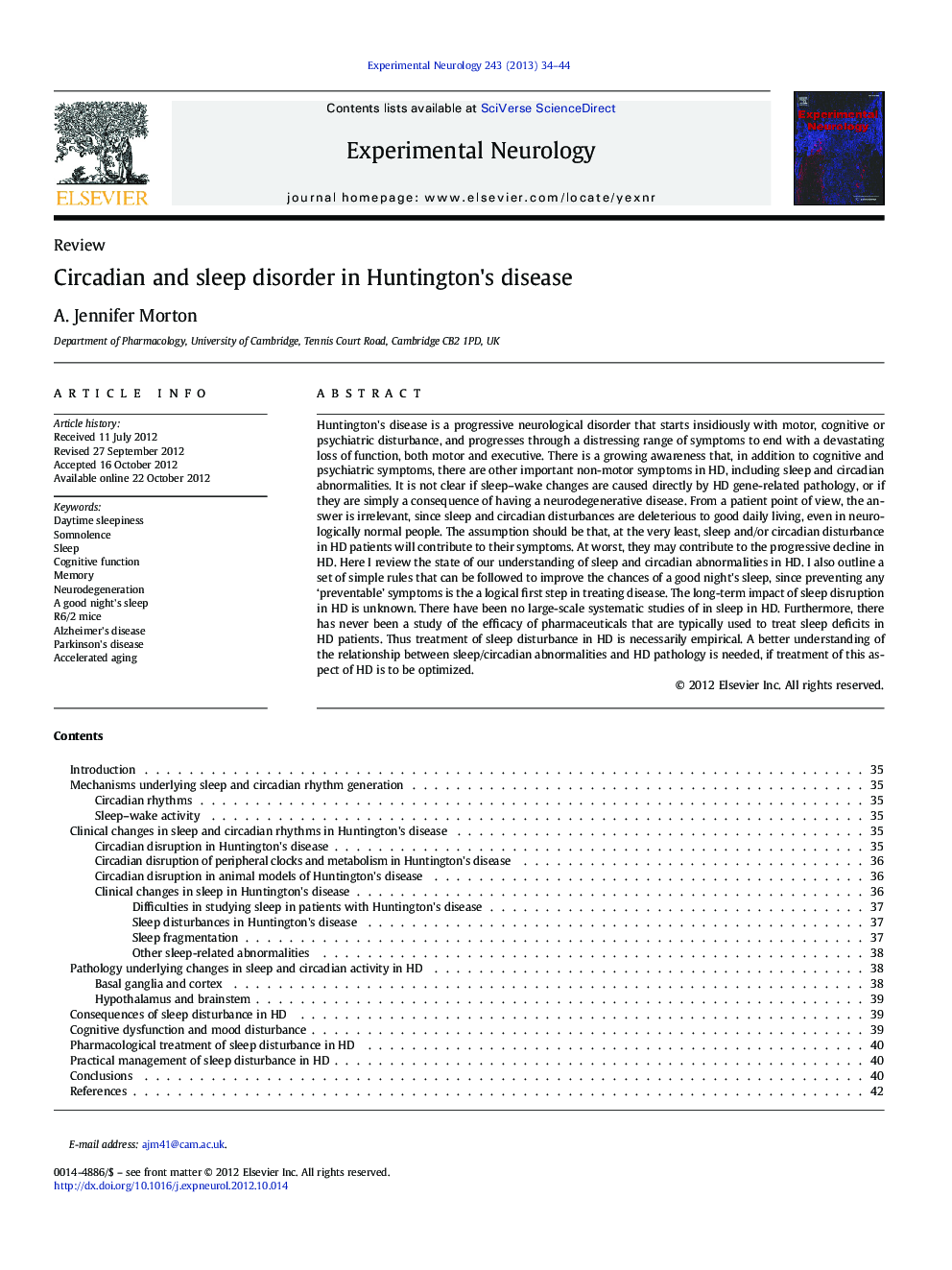| کد مقاله | کد نشریه | سال انتشار | مقاله انگلیسی | نسخه تمام متن |
|---|---|---|---|---|
| 3055619 | 1580189 | 2013 | 11 صفحه PDF | دانلود رایگان |

Huntington's disease is a progressive neurological disorder that starts insidiously with motor, cognitive or psychiatric disturbance, and progresses through a distressing range of symptoms to end with a devastating loss of function, both motor and executive. There is a growing awareness that, in addition to cognitive and psychiatric symptoms, there are other important non-motor symptoms in HD, including sleep and circadian abnormalities. It is not clear if sleep–wake changes are caused directly by HD gene-related pathology, or if they are simply a consequence of having a neurodegenerative disease. From a patient point of view, the answer is irrelevant, since sleep and circadian disturbances are deleterious to good daily living, even in neurologically normal people. The assumption should be that, at the very least, sleep and/or circadian disturbance in HD patients will contribute to their symptoms. At worst, they may contribute to the progressive decline in HD. Here I review the state of our understanding of sleep and circadian abnormalities in HD. I also outline a set of simple rules that can be followed to improve the chances of a good night's sleep, since preventing any ‘preventable’ symptoms is the a logical first step in treating disease. The long-term impact of sleep disruption in HD is unknown. There have been no large-scale systematic studies of in sleep in HD. Furthermore, there has never been a study of the efficacy of pharmaceuticals that are typically used to treat sleep deficits in HD patients. Thus treatment of sleep disturbance in HD is necessarily empirical. A better understanding of the relationship between sleep/circadian abnormalities and HD pathology is needed, if treatment of this aspect of HD is to be optimized.
► There is substantial evidence for sleep abnormalities in HD.
► Circadian abnormalities are also evident in HD patients.
► Circadian clock abnormalities are clearly present in brain and periphery of HD mice.
► Sleep–wake deficits could contribute to cognitive decline in HD.
► Treating sleep deficits might delay cognitive and emotional decline in HD.
Journal: Experimental Neurology - Volume 243, May 2013, Pages 34–44